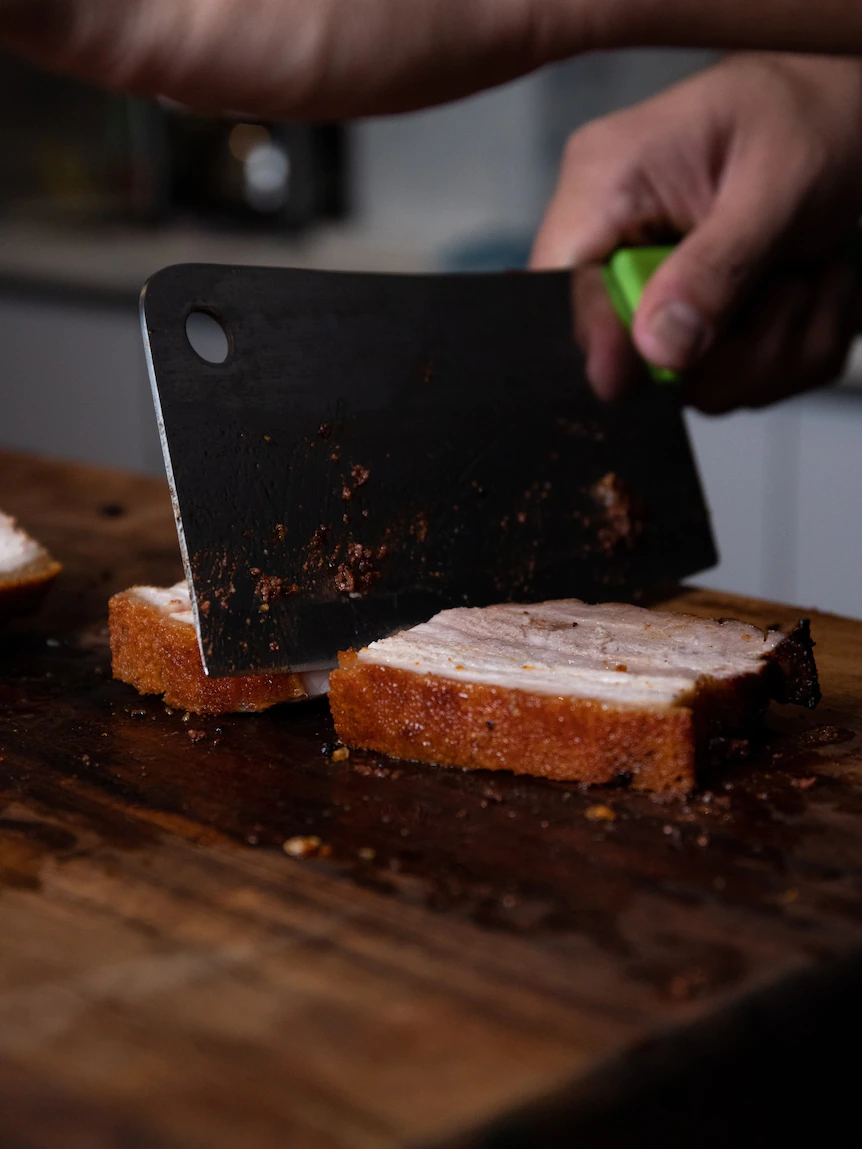Consumers have been guaranteed it is safe to eat pork, as the country continues to manage Japanese encephalitis virus (JEV).
Key points:
- Pork producers promise their goods are safe to eat amid Japanese encephalitis virus management
- South Australian industry head says the vaccine rollout has been a success
- Authorities urge producers to remain vigilant of mosquitoes even as the weather gets colder
The virus is mosquito-borne, which means it cannot be passed on from pigs to humans.
South Australia’s Chief Veterinary Officer Mary Carr said Australians should be confident that pork products were safe to consume.
“It’s really important that everyone understands that pork meat, pig products are safe,” Dr Carr said.
Experts have predicted the virus will impact supply chains in states like New South Wales, but Dr Carr said there were no production concerns in South Australia.
“We’ve managed through this response to ensure that the movement of pigs has continued … minimising any impacts to industry,” she said.
Pork SA chair Andrew Johnson said the pork industry was feeling well supported by state and federal authorities and he wanted to encourage consumers to share the love back.
Detections around Australia
There have been seven JEV detections in commercial South Australian piggeries with no additional cases since early April.
With a handful of cases confirmed in Queensland piggeries, at least 22 in Victoria and 30 in New South Wales, Australia’s total number of detections sits at more than 70.
Horses are also known carriers of the disease, and a rare case of JEV was confirmed in an alpaca in South Australia.
A total of 37 people have contracted Japanese encephalitis in Australia, including three deaths in New South Wales, South Australia and Victoria.
The federal government has prioritised the JEV vaccine for people at risk of exposure, such as abattoir and piggery workers, veterinarians and others who work closely with pigs or mosquitoes.
Mr Johnson is a pork producer in South Australia and is receiving his jab this week.
He commended the state government on a successful vaccine rollout, especially to workers at the seven affected piggeries.
“That rollout happened initially to infected properties, then also it’s been opened up to producers, their staff, and any other vulnerable people.”
Australians who believe they might be at risk of JEV can seek more information from a health practitioner.
Preparing for the cooler months
Piggeries have been quick to address the threat of JEV by implementing mosquito management plans.
But Dr Carr urged producers to remain vigilant, even throughout the winter months.
“At this time of the year we do normally see a reduction in mosquito levels, which will reduce the risk of Japanese encephalitis,” she said.
“Knowing that, we are still dealing with a new disease for Australia.
“So we’re asking all producers, pig producers, also horse owners, to be still alert for these signs and report them in.”
Posted , updated

